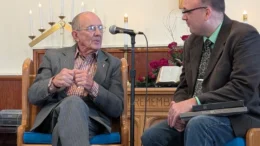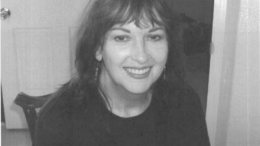When “Death Note” begins, we learn that Seattle teenager Light Turner has a crush on a cheerleader at his high school. So when these two would-be lovebirds finally talk for the first time and really open up to each other, Turner has to be honest: “It’s going to sound a little crazy,” he tells her, “but I have a death god.”
Well, not to be too judgy, but, yeah, that actually does sound a little crazy. Even so, our hero manages to get his companion intrigued and not make a swift exit to calculus. If you don’t have your own death god, you might also want to check out “Death Note” — until you tap out about three-quarters in and run off to calculus.
The film , a live-action adaptation of the popular Japanese manga-turned-anime, is about a supernatural notebook that gives the owner the power to kill anyone they like. All they have to do is write the name of someone while picturing his or her face. (There are dozens more rules, of course, but who bothers to really read instruction booklets anyway?)
The book, which appears literally out of the sky, comes with its own demon and that turns out to be a 9-foot-tall dude with glowing red eyes, spiky hair and a penchant for eating apples. He has the chilling, unhinged voice of Willem Dafoe, which makes him extra creepy. (Forget apples, Dafoe’s gnawing on the scenery).
The original manga — conceived and written by Tsugumi Ohba and illustrated by Takeshi Obata — has already been turned into a 12-volume book series, a TV series and even a stage musical, among other properties. This time, it’s directed by Adam Wingard and the story has been moved to Seattle. The hero (Light Yagami) is now a super-bright, loner (Light Turner), played by Nat Wolff, trying to keep some sort of acting realism in a film that gets gradually unmoored from reality (as films with apple-eating demons tend to do.)
Turner teams up with the cheerleader (Margaret Qualley, who is pretty terrific as she unwinds her inner crazy) to mete out final punishments, first to high school bullies, then going wider to terrorists, drug dealers, serial molesters and gang members. “We can change the world,” they claim, giddy after 400 deaths.
Not everyone is happy with the sudden slayings of the world’s worst people, especially Turner’s cop dad and a mysterious and quirky freelance detective (Lakeith Stanfield, whose unsubtle performance has unfortunately been inspired a little too much by comics). They go hunting for whoever is putting them out of business.
The reason “Death Note” is so popular is that it raises tough philosophical questions — Who deserves death? How do you determine guilt? What crime calls out for instant karma? Put aside the demon, and those questions are timely in an era of drone strikes and debates over collateral damage.
But this thriller-inclined version of “Death Note” doesn’t dwell enough on such questions and instead becomes increasingly strained by its own insanity and clogged by clunky dialogue. Taking its time to establish characters, it then rushes headlong into a montage of bodies piling up, a cat-and-mouse chase, stunts worthy of 007 and ends as a twisted love affair with shades of “Macbeth.” It’s tried to cram in too much and be too many things.
Aside from great visual effects, basic stuff gets weird, like a swarm of FBI agents who are tracking a crucial suspect not bothering to listen in or trace his cellphone. These same top-notch feds also get confused by who exactly is wearing a top hat. The film’s use of cheesy songs by Air Supply and Berlin doesn’t help, either.
Netflix has faced criticism for the Westernization — or “whitewashing” — of the original material, only a few months after Paramount Pictures suffered a flop with its “Ghost in the Shell” with Scarlett Johansson, who stepped into another cherished Japanese title. But the biggest problem with “Death Note” is maybe that the filmmakers this time simply didn’t get enough notes — or too many.
“Death Note,” a Netflix release, is rated TV-MA. Running time: 106 minutes. Two stars out of four.








































